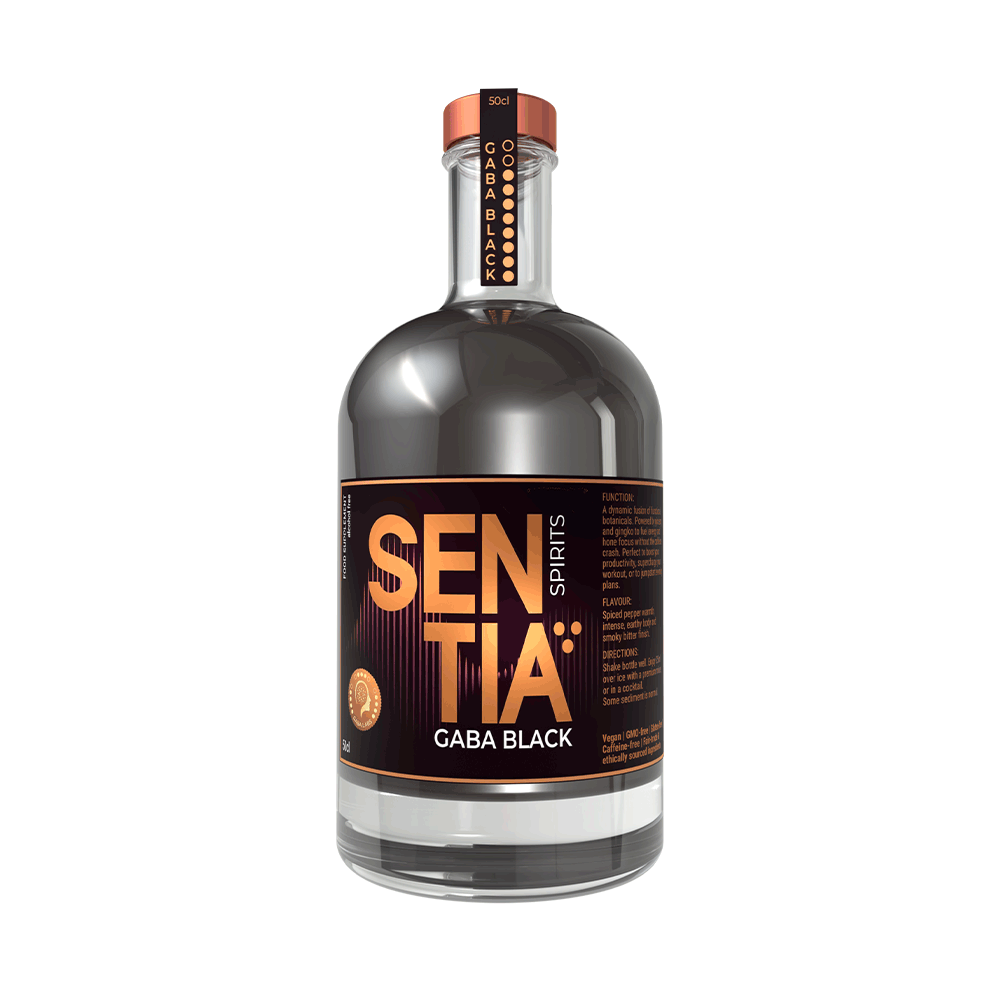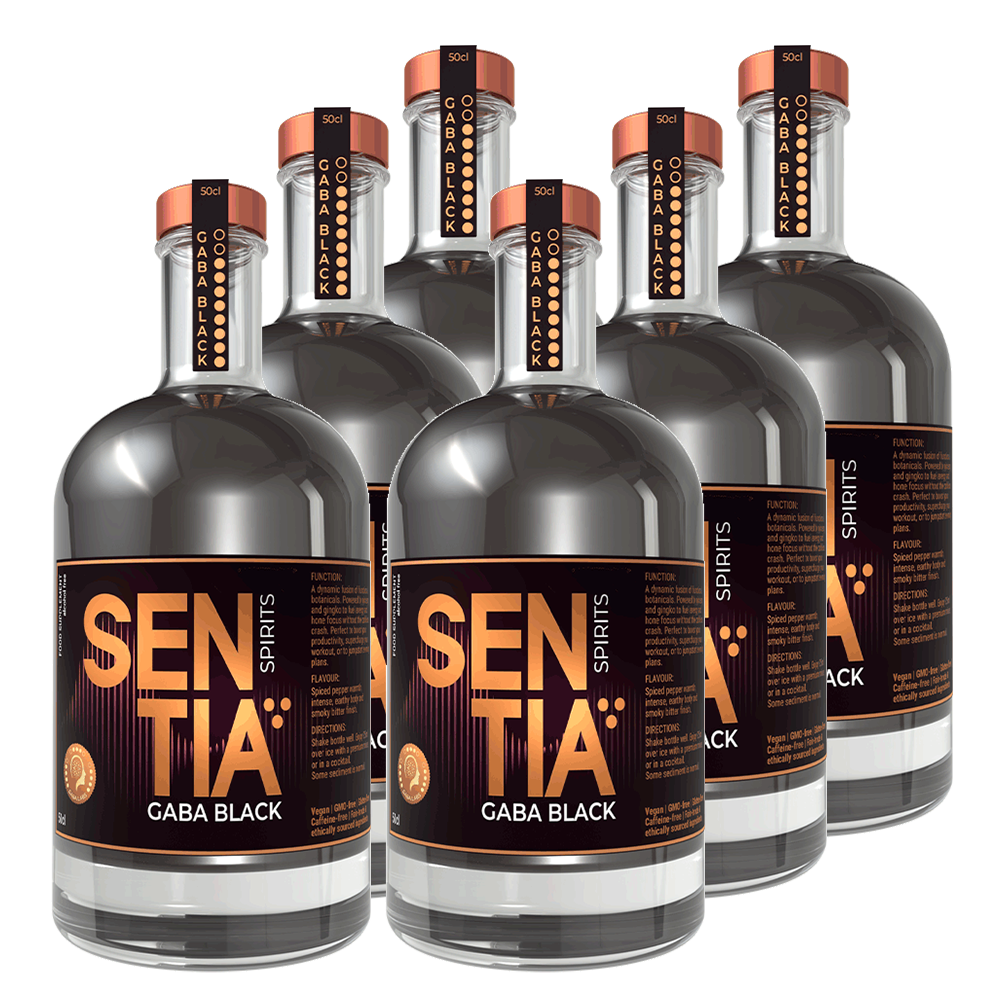
Adaptogens and Nootropics - worthy of a role in your life?
Adaptogens and Nootropics: Stress Busters and Brain Boosters? Or just Pseudoscience?
If you’re familiar with the no/low alcohol space, you’ve probably come across the terms "adaptogen" and "nootropic". But what are these (not so) new-fangled substances? Are they the future of functional food and drinks, or a pseudoscientific flash in the pan?
Turns out it’s a little from column a), a little from column b). Let's look behind the hype and see what Science has to say about them.
What Are Nootropics?
Nootropics are substances argued to enhance cognitive functions such as memory, creativity, motivation, and executive functions in healthy individuals. The term was coined in 1972 by Dr. Corneliu E. Giurgea, a Romanian psychologist and chemist. Nootropics can be either natural or synthetic and have been touted in the media as "cognitive enhancers.” Whilst there is some consensus about the benefits of nootropics for healthy individuals, a recent comprehensive review states that nootropics are most effective where cognitive functions are obviously impaired.
Research on nootropics has been ongoing for years. The most extensively studied and catalogued nootropic has probably been sitting in your kitchen since well before the term gained popular currency.
Caffeine is a nootropic; it improves attention and executive functions by blocking adenosine receptors in the brain. Adenosine receptors are proteins in the brain and body that help regulate sleep, relaxation, and blood flow by responding to adenosine, a chemical that builds up while you’re awake, promoting sleepiness.
Blocking these receptors leads to increased neural activity. Compounds like the sitoindosides found in Ashwagandha have shown anxiolytic (anxiety-reducing) effects and enhanced social cognition. In plants, sitoindosides protect against environmental stresses, a little like an immune response.
It’s believed that when consumed, these compounds can augment the efficacy of the neurotransmitter GABA, which calms the brain. Studies suggest that ginkgo biloba’s flavonoids and terpenoids (compounds that give plants their colours, scents, and flavours) protect against oxidative stress and improve blood flow, enhancing perceptual and motor functions.
The—somewhat murky—World of Adaptogens
Adaptogens are a category of natural substances, argued to help the body adapt to stress and “maintain homeostasis”, or a state of physiological balance. The term "adaptogen" was first used in 1947 by Russian scientist Nikolai Lazarev, who used the term to describe substances that could increase a "state of non-specific resistance" to stress.
Adaptogens are a broad and somewhat ill-defined category of substances, and their effects are similarly ambiguous. While they are widely marketed for stress relief and well-being, the scientific evidence supporting many adaptogenic claims remains limited and often inconsistent.
You can find adaptogens in Rhodiola rosea, or “golden root” a plant used in traditional medicine for millennia. Rhodiola contains compounds called rosavins and salidrosides, which are said to reduce stress and enhance mental performance by providing antioxidant effects.
Despite the popularity of adaptogens, clinical trials show mixed results, and the adaptogen market suffers from poor regulation, leading to potential risks and misconceptions.
How Nootropics and Adaptogens Can Benefit You
Incorporating nootropics and adaptogens into your lifestyle may support cognitive and physical performance. Some Nootropics—like caffeine—have been conclusively shown to help boost mental clarity, memory, and focus—but for others the scientific evidence isn’t there yet.
What about Adaptogens - might they assist in managing stress and enhancing resilience? Well, the research at present is inconsistent. This is not to say that compounds in the category of adaptogens do nothing at all, rather that the evidence can't yet be relied upon fully.
Nootropics and Adaptogens in SENTIA
Along with a host of other plant-based ingredients, Sentia contains the following:
GABA Red ingredients:
-
Ashwagandha: Often used in Ayurvedic medicine, compounds in ashwagandha can support learning and memory recall. There’s evidence that ashwagandha can act as an anxiolytic.
-
Holy Basil: As a nootropic an extract of Holy Basil (Ocimum tenuiflorum) has been shown to promote sleep and reduce stress. Holy Basil is argued to have adaptogenic properties that may help manage stress and support cognitive function.
-
Rose Petal: Contains antioxidants that can support brain health.
GABA Black ingredients:
-
Ginseng: Substances in ginseng, known as ginsenosides, show neuroprotective properties. Ginseng may help reduce fatigue, and recent research suggests that compounds in ginseng may enhance neuroplasticity—the ability of the brain to modify its structure over time—which can support memory formation and improve cognitive function.
-
Ginkgo Biloba: Contains flavonoids and terpenoids that protect against oxidative stress and improve blood flow to the brain, helping to maintain focus and support cognitive function.
Conclusion
Understanding nootropics and adaptogens can empower you to make informed choices about your health and wellness. While nootropics offer targeted cognitive enhancements, adaptogens are a less well-defined category, whose properties remain unclear.
You can discover more about SENTIA products and their ingredients here. Here's to a balanced and vibrant lifestyle!

